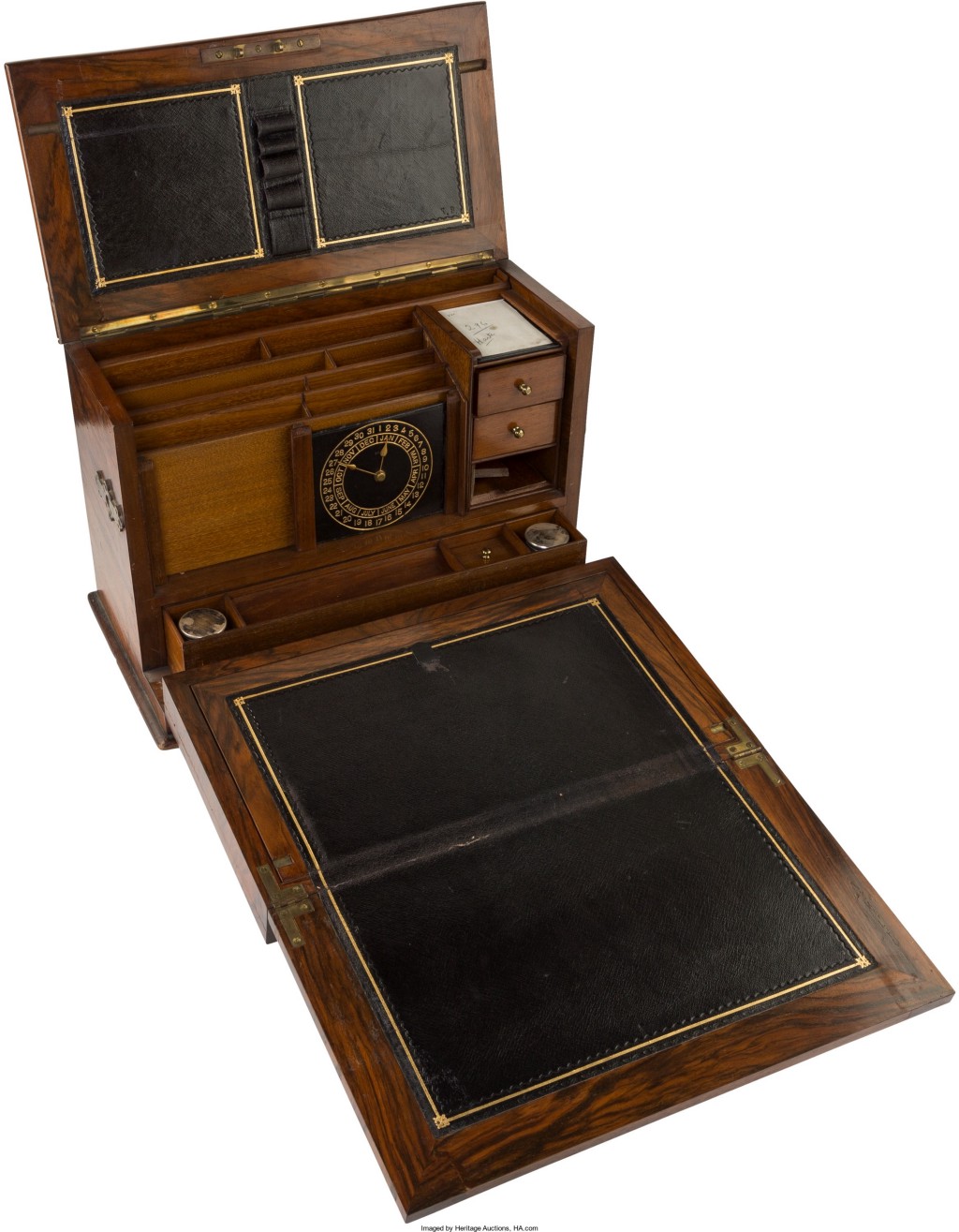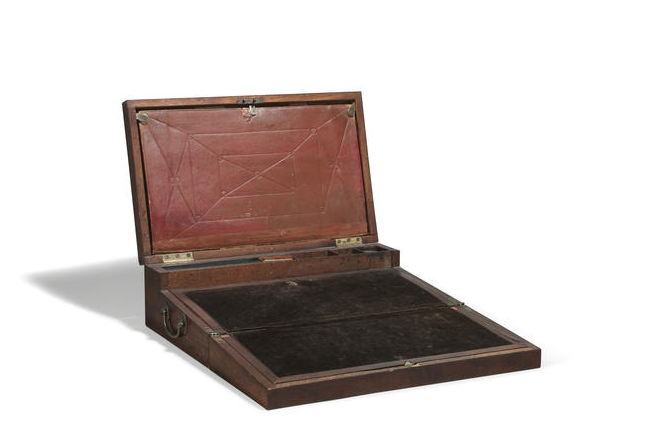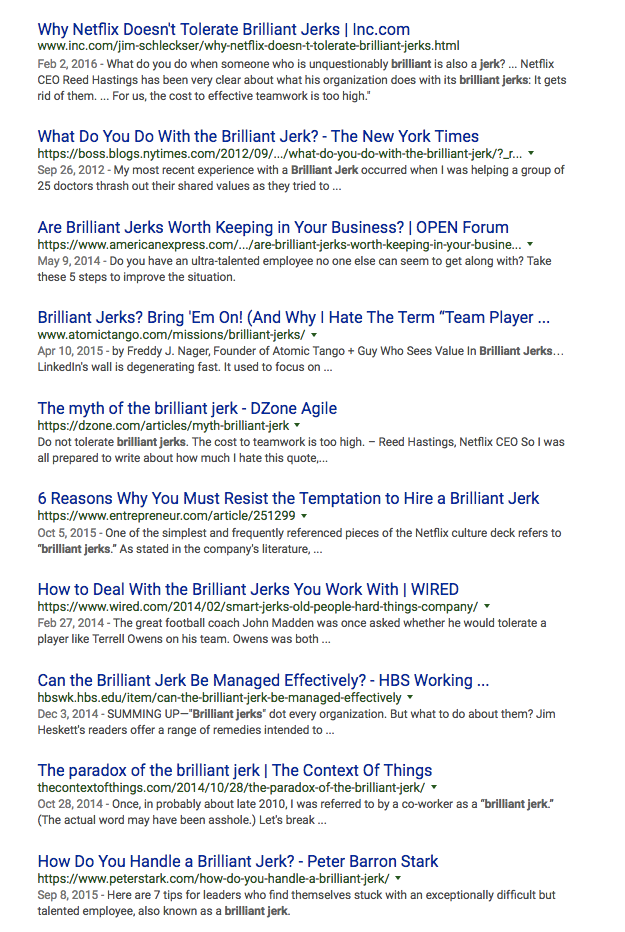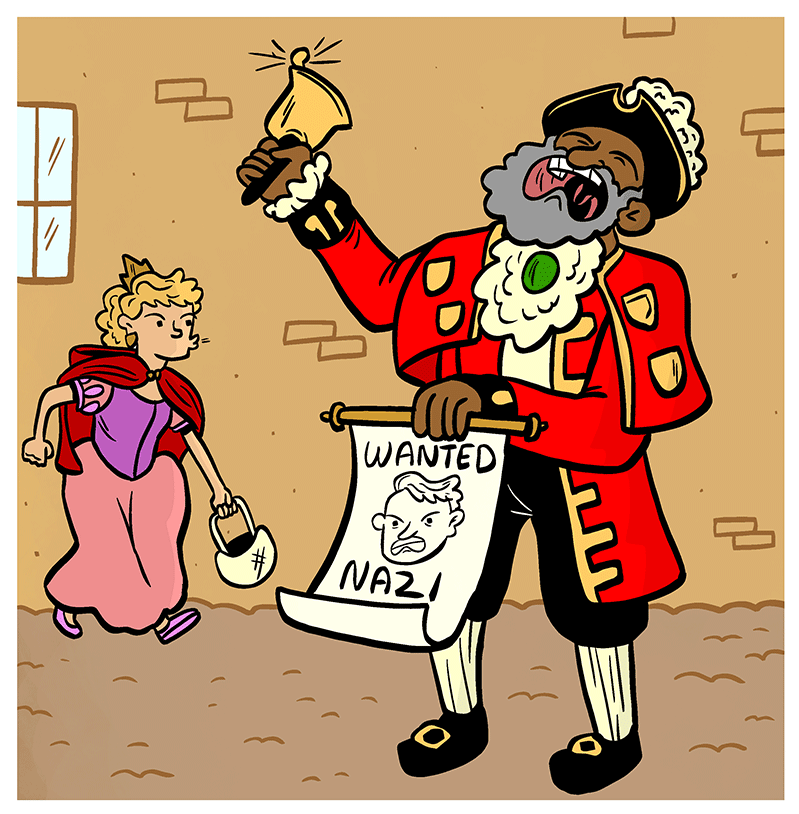When Was The Last Time You Thought About Pert Plus?
The green bottle is still around, but who’s buying it?

Remember 2-in-1 shampoo commercials? There were a couple of kinds—the ubiquitous Head & Shoulders, which always had the best commercials, the blue one (Selsun Blue), and the green one (Pert Plus). When was the last time you saw Pert Plus in a store? Please DM me the exact location and price per fluid ounce and a picture of the bottle and how much dust was on it.
For some reason, Pert was the “male” brand, because it was like, “look, we’re the original 2-in-1 formula and if there’s anything men appreciate it’s a no-frills shower approach!” Remember the 3-in-1 version?? Nice and dumb and basic for men (which is not coincidentally why all the men use Dr. Bronner’s now). Pert was the best-selling ‘poo brand in 1990!!?!
A Few Animals Wake a Shampoo From Hibernation
WHY HAVE WE FORGOTTEN PERT??? Why did Pert “fail?” It didn’t really fail entirely because it still exists, but why did it recede from view? Some very confusing business lingo happened in 2006 which I as a laywoman read to mean “P&G sold Pert Plus in 2006” and then the “portfolio” of companies that had possession of it sold it to another brand conglomerate, Helen of Troy, and along the way Pert’s branding has totally suffered, which is to say it has been pretty nonexistent in the “dandruff shampoo space,” if you will, which—yes, good question, is Pert Plus a dandruff shampoo? Not really but they do have one formula available, and it was the 2-in-1 bit that was making you conflate it with Head & Shoulders.

Anyway, Racked to the rescue with this wonderful history on the forgotten green bottle:
Pert, in addition to being an old and semi-forgotten drugstore brand, also likely fell out of favor, at least among women, because of cleansing conditioners (also referred to as co-cleansers), like this Racked-approved one from R+Co. They became popular as part of the “no ‘poo” trend. They are generally free of sulfates, which have gotten a bad rap over the years for being stripping and drying, which is true for certain hair types. This new generation of 2-in-1s feel more like conditioners, while Pert definitely feels like a traditional shampoo.
Pert Plus Just Got a Hunky New Makeover
Basically what happened next was: Axe! But also Innovative Brands LLC didn’t do much for Pert Plus marketing-wise. But now Helen of Troy has a new bet, which is an edgy (haha) new bottle (angles instead of curves just how we like our men), and a spokesfighter/brand ambassador, Elias Theodorou. Look at that hot man in green shorts who punches people for a living! He has long beautiful man-bun-length hair. Doesn’t it make you just want to buy some Pert (no more plus)?
T-minus how long until we see a wide-scale embrace of sulfate-full shampoo? You know, for that nice, slippery, retro feeling.
I'd Like to Thank Whoever Gave This Envelope to Warren Beatty
And other answers to unsolicited questions

“I someday want to receive an award at a broadcast award show. What are the keys to giving a good acceptance speech?” — Thankful Tom
Award shows are not about the winners of the awards given. 100% of the people watching at home will not be winning awards this year. People watch for the glam and fashion. They watch for the bigness of the occasion. And they watch so that someday they may be ready to spend a minute or two behind a microphone, thanking people for their own award victory.
Given this year’s batch of nominees, or literally any year’s batch of nominees, we all could be behind that microphone sooner than we think. Best adapted screenplay seems definitely up for grabs. Everyone loves unreliable narrators? So where is the big screen adaptation of James Frey’s Million Little Pieces? I’d cast Michael B. Jordan for the role of James, to make him more likable. Oprah could play herself, yelling at poor James for not remembering if they used novocaine when he went to the dentist or whatever. It could be a compelling look at the nature of what’s true v. what’s real in a post-Truth currently-Trump America. Mr. Frey, your Oscar awaits. Can you fake it until you take it?
Best original screenplay seems like a lay-up, too. If all you have to do is have stage directions that say “[Then Ryan Gosling dances in the sky]” well how hard could that be? Just write a movie about writing a movie, you will win. “Do you know what the best thing about writing a movie is, Dolores? You can give yourself all the best lines.” And then you will need a great speech.
I think the most important speech isn’t pretending to be humble (which you don’t need to do, but if it comes naturally, OK.) The most important thing is just not pissing off any of the people you will need down the road. Definitely thank your husband, wife and kids. Significant others of any kind. It is cold on the couch with just you and your Oscar. It will not keep you warm, that cold, cold gold. These are really the only people you need to thank. Your parents. You shouldn’t thank God, but you can definitely thank the Devil for whatever arrangement you made to win the award in the first place. Managers, hair stylists, directors, brilliant writers, these people are a dime a dozen. If you thank them and call them geniuses, you will probably have to do something with them that’s less geniusy in the future.
If there is a role you want, your Oscar speech would be a great time to publicly ask for it. If Denzel wins an Oscar and then says “This is great, but I really still think I’m young enough to play Batman” the dude would get cast as Batman. Ben Affleck doesn’t even want it anymore. The movie he should make next is “North Shore Fish” by Israel Horowitz.
If you can cry, cry. You only have 30 seconds. If you spend 20 of it blubbering, no one will remember what you said. They will simply love you for being a real person. For making them cry. For making it OK to cry. As I age I enjoy crying more and more. I watch Mets’ games sometimes when I feel like crying. I watch the end of Armageddon when I feel like crying. Or the Oscars, which make me feel like crying almost constantly. So cry, winners, cry. I want to cry. I really, really want to cry.
It’s OK to have something written down. The crappier the piece of paper looks, the better. If it’s a napkin from a bar, you’re the winner of everything for all time forever. There’s a delicate balance between acting prepared-to-win and being disorganized and unprepared entirely. Both can be pulled off with wit and charm. But it’s better to at least have notes, not the Gettysburg address written down. Don’t act surprised unless you actually are surprised. No one cares too much about you winning until you give a great speech. Then they’re like, I don’t mind that that person won.
All I really want from your Oscar acceptance speech is ideas for my Oscar acceptance speech. Everyone has a list of old teachers and lovers. I think I am going to thank Michelle Obama in my speech. Just because I want to be friends with Michelle Obama. I bet she is an awesome friend who always has your back. I might ask Taraji P. Henson if she wants to go to a hockey game with me sometime during my speech. Make your speech work for you. It’s your moment. Be yourself. Especially if your true self is seriously crazy. They give out Oscars every year. But crazy is forever. Everyone remembers it. It never goes away.
If they read the wrong name and in the middle of your speech ask you to give the award back, run for it. Don’t stand around waiting for them to take it away from you. If someone hands you an Oscar, that’s your Oscar. If they try to take it away from you, hit them over the head with it and run like Hell. No one will blame you.
Jim Behrle lives in Jersey City, NJ and works at a bookstore.
Read This Thing
Just do it.

Half of this Nell Zink piece on… let’s say reading and writing, but it’s about a lot more than that, will make you roll your eyes with such velocity that you will need to summon help to retrieve them from the corner into which they have been discharged, but the other half is so enjoyable that you will be sending it to friends and saying, “You’ve got to check this out,” which is what is happening right now. Normally you’d get a quote to show you what to expect, but the eye-rolly part is so deeply interwoven with the “this is amazing” part that there is not one representative section to pull out that wouldn’t potentially put you off. Just click through and soldier on, it is so worth it.
And How Does That Make You Feel?
The Adventures of Liana Finck

Liana Finck’s work appears in The New Yorker and Catapult, and on her Instagram feed. Her first book, A Bintel Brief, was published by Ecco Press in 2014.
Knife in the Water, 'Reproduction'
Hear the whole thing here.

I was horrified very recently to realize that Knife in the Water’s astounding debut, Plays One Sound and Others, will be twenty years old next year. Still, there is good news for those of you who for one reason or another, possibly involving not being so aged, have never heard it: It was just remastered and released on vinyl, which should hopefully draw the valuable but fickle attention of young people to it.
Knife In the Water “Plays One Sound and Others” VINYL LP
Even better, the band is about to put out its first new record in nearly fifteen years. Reproduction is immediately recognizable as a Knife in the Water work, with the slow, loping sadness and low-pressure beauty that made Plays One Sound such a revelation those (JESUS HOW?) twenty years ago. They sound just a little more scuffed up with age, but look in the mirror, the last twenty years have been much rougher on you.
This is a record that could easily have come out any time in the last twenty years, and a continuing demonstration of what makes Knife if in the Water so special: Reproduction clocks in at 44 minutes, and even for a band that loves to let things take their time there is no excess on the album. (“I Can Go On” — the double meaning of which is so perfect for a song that it is hard to believe it has not been used to more success by anyone before — is a great example: What could be a classic rave-up stays at its own considered pace, to lasting effect.) You can stream the whole thing below, and I recommend that you do. Enjoy.
Also, if you’re in Austin this Thursday I am very jealous of you, but more importantly you should for sure go to this:
3/2 Knife in the Water LP release, Dallas Acid …
Reproduction is out on Friday.
New York City, February 23, 2017

★★★ Startling fog covered the view. Even after the worst had lifted, dampness was general. The top of the Empire State Building stayed missing while blue appeared overhead. By mid-afternoon the whole building was back, delineated crisply all the way to the mast. In the other direction, the downtown skyline dissolved in the sun-filled lingering haze. Safety-colored clothing glowed in the light coming through the space where a building used to be. The night stayed so warm that the coarse sweater had to come off partway through the 30-block stroll back from dinner.
8 Famous Writers' Desks You Could Have Owned
In a word: mahogany
Coming up for auction on March 8 is a portable writing desk owned by Bret Harte, a short-story writer and poet who mined the California Gold Rush for his best-known stories, such as, “The Luck of Roaring Camp,” published in 1868. Harte has been referred to as the “leading literary light of the Pacific coast” during the post-Civil War era; he was even a close pal of Mark Twain’s. (Until he wasn’t: “Harte is a liar, a thief, a swindler, a snob, a sot, a sponge, a coward, a Jeremy Diddler, he is brim full of treachery, and he conceals his Jewish birth as if he considered it a disgrace.”)

As a writer and an editor of literary journals, Harte struggled. So he packed up and relocated to Europe, where he received this swanky walnut-and-brass number as a gift in the late 1870s. According to the auction house’s catalog, “he composed all of the stories that he wrote in Europe on this desk, and continued his use of the desk until he passed away in 1902.”
Famous writers’ desks occasionally appear at public auction, to mixed results. The bidding on Harte’s desk starts at $2,000, which isn’t all that much considering its history. Who wouldn’t want to own a desk (perhaps even a chair) so closely linked to an author whom they admire, or aspire to emulate? As the catalog notes, “For authors of this period, a writing desk is one of the most intimate association ‘realia’ that a collector might hope to acquire and cherish.”
What other celebrated authors’ desks have been recently offered at auction — i.e., that you might have purchased had you the foresight and the wherewithal?

Let’s start with Charles Dickens, whose mid-nineteenth-century mahogany desk sold to a private buyer for the equivalent of $850,000 at Christie’s London in June 2008. Descended through the Dickens family, it was known to be the very desk at which Great Expectations was penned. In 2015, the desk was again for sale, discreetly, as the Charles Dickens Museum summoned a $1.2 million grant from the National Heritage Memorial Fund and “saved it for the nation” (from pesky American collectors, we’re guessing).

Charlotte Brontë: On December 17, 2009, Sotheby’s purveyed this sloping George III mahogany desk, from the collection of William Law, who purchased items directly from Charlotte’s widower, the Rev. A. B. Nicholls. More than doubling its estimate, the artifact reached £20,000 (about $32,400). Its anonymous buyer — dear heart — donated it back to the Parsonage, the Brontës’ home, in 2011.

Herman Melville: This mahogany traveling lap desk, lined in brown velvet but still rather austere in comparison to Bret Harte’s dandier model, was owned by the author of Moby-Dick. Interestingly, when Bonhams auctioned the Victorian-era laptop in New York on June 22, 2011, it was a fellow author who won it for $34,160: Maurice Sendak.

Agatha Christie: Few details can be mustered about this desk since, mysteriously, no record of it appears on the website of the auction house, Cheffins of Cambridge, England, that sold it. Here’s what we know: it was constructed of mahogany. Christie, aka ‘The Queen of Crime,’ used the antique in her Kensington home. Upon her death in 1976, it was relegated to an attic before turning up at auction on March 25, 2009. It appears to have sold for about $3,650.

Joseph Heller: For about $1,500, you could have acquired the scruffy, mid-century wooden desk, complete with coffee rings, that belonged to the Catch-22 author. It lacked for bidders when it was offered, without reserve, by Bonhams in New York on December 15, 2011. The desk and lamp had resided within Heller’s writing studio at his East Hampton home “from at least the early 1980s,” stated the auction catalog. Like Heller, Bram Stoker (Dracula) felt the shade when his “refurbished” (mahogany?) desk failed to meet its asking price at an LA auction in 2012. But all’s well that ends well: Heller’s widow donated the desk to the University of South Carolina.

Samuel Taylor Coleridge: When the English poet-philosopher, whose “The Rime of the Ancient Mariner” you likely read in high school, died in 1834, he left this “mahogany writing slope” behind. When Bonhams first presented the lap desk for sale in 2013, it attracted no interest; when it was put on the market (for much less) in 2014, still nada. On March 18, 2015, success at $7,500.

Robert Browning: According to the distant relations who consigned this mahogany pedestal desk to an Edinburgh sale on March 5, 2014, it dwelt in Browning’s London home, where he lived from 1887 until his death two years later. His wife, fellow poet Elizabeth Barrett Browning, had died in 1861. If this desk had been hers, would it have made more than the $6,000+ it ultimately sold for? Moot point: Princeton already owns her “slant-topped” model (obvs, made of mahogany).

Sir Walter Scott: At the same Edinburgh auction house, Lyon & Turnbull, on September 10, 2014, Sir Walter Scott’s sloped mahogany desk went under the hammer. It was in this “old writing desk,” housed in a “lumber garret” at Abbotsford, where Scott later recounted finding the “long-lost manuscript” of his Waverley. A bargain at about $8,500, the literary relic is currently on display at the Writers’ Museum, courtesy of its private owner.
Rebecca Rego Barry is the author of Rare Books Uncovered: True Stories of Fantastic Finds in Unlikely Places.
If It Walks Like A Jerk And Talks Like A Jerk
Call him an asshole, not “brilliant,” and don’t hire him.

Last weekend, Susan J. Fowler, a former engineer for Uber, lit that company’s pants on fire with a single very good and very upsetting-to-read blog post filled with detailed accusations of repeated sexual harassment and basically corporate malfeasance at some pretty high levels. It painted a pretty dark picture of the corporate culture:
Over the next few months, I began to meet more women engineers in the company. As I got to know them, and heard their stories, I was surprised that some of them had stories similar to my own. Some of the women even had stories about reporting the exact same manager I had reported, and had reported inappropriate interactions with him long before I had even joined the company. It became obvious that both HR and management had been lying about this being “his first offense”, and it certainly wasn’t his last. Within a few months, he was reported once again for inappropriate behavior, and those who reported him were told it was still his “first offense”. The situation was escalated as far up the chain as it could be escalated, and still nothing was done.
Reflecting on one very, very strange year at Uber
Shortly thereafter, The New York Times’ Mike Isaac reported on the fallout from that post—a 90-minute all-hands meeting, including board member Arianna Huffington, who was presumably there to be The Woman On The Stage, a.k.a. The Mom, a.k.a. the responsible one here to ensure the women and also the closely listening public that Something Will Be Done About This because Travis Kalanick is the boob-loving frat-boy that no one can take seriously anymore and he needs a real grown-up and a former attorney general onstage so you know he’s for real. The piece ended with a kicker that made me spit out my bile:
At the Tuesday all-hands meeting, Ms. Huffington, the Uber board member, also vowed that the company would make another change. According to attendees and video of the meeting, Ms. Huffington said there would no longer be hiring of “brilliant jerks.”
This term, “the brilliant jerk,” has been around for a while in corporate lingo. I remember first reading about in a New York Times blog post (R.I.P. blogs) in 2012. (PLEASE DON’T ACTUALLY ME ABOUT REED HASTINGS, YOU JERKOFF, HE’S TWO GRAFS DOWN.) I guess there was a series about Being The Boss and the URL was boss.blogs.nytimes.com 🙁 What a world! Anyway it was a sort of advicey column about what to do about that one archetype, the Brilliant Jerk, in your workplace. It was fun to read when it came out because everyone got to speculate about who their brilliant jerk was.
What Do You Do With the Brilliant Jerk?
But everyone already knows who the brilliant jerk at their workplace is because it’s the raging asshole!! It’s not hard to tell. And yet somehow as long as we’ve had a word for it, and probably even longer, we’ve wrung our hands over whether or not to cope with this fucktard over here because—wait for it—HE’S BRILLIANT! Indeed, there is a whole wealth of recent e-literature regarding how to solve an incorrigible problem like the Brilliant Jerk:

Reed Hastings, the CEO of Netflix, maybe probably coined the term in 2009 in a PowerPoint deck (sorry that’s just what they call it) about Netflix corporate culture. He wrote, “Brilliant jerks. Some companies tolerate them. For us, cost to effective team work is too high.” Yes, that is the origin myth of the Brilliant Jerk. That’s where he was born. It’s so weird that eight years after identifying him we just haven’t been able to figure out what to do with him! He’s just been sitting there this whole time! We’re just so pleased with this clever paradox; it rings a bell for everyone. We are enthralled by the Brilliant Jerk, because it’s so true, right? Wow.
So we keep letting him in. We keep bringing him back. And because we’ve kept him around, he thinks he is safe and in a good position at the office. He has nothing to fear, nobody’s watching him or disapproving. Maybe can get away with a drunken fondle at a boozy work event or a suggestive DM on the corporate-messaging system. The longer he stays, the more he tries, and the more he probably gets away with. Besides, what could you possibly say, he’s been here so long and contributed a lot to the company? The longer you let him stay, the more you give him permission to curdle your corporate culture.
I’ll tell you what: first of all, stop calling him that. Brilliant is just how we excuse Jerk. It’s how he gets away with bad behavior, like sexual harassment and insubordination (and yes, he is usually a he). Let me get all third grade on you for a second here: If you’re so brilliant, then why haven’t you figured out how to be good at your job? The jury is long out on the jerks’ performance: they may be highly productive, “but they are not, however brilliant business people,” wrote Cliff Oxford in the Times. This is because good business people, strangely enough, are good people.
Let’s try for a second to imagine a female jerk. A bitch, if you will. Has anyone in a corporate setting (i.e., not on feminist Twitter) ever defended a woman by offsetting her bitchiness with a defense about her first-class mind? No—her bitchiness is viewed as an undesirable trait in a coworker; so too should jerkiness be. And not one to be swept under the rug:
Occasionally, problematic managers who were the subject of numerous complaints were shuffled around different regions; firings were less common.
Indeed, the answer to the dilemma of that Times blog post :‘( was, “Get rid of the Brilliant Jerk as fast as you possibly can.” Better yet, don’t hire him in the first place. The way the announcement is worded in the Times piece, it’s as though Uber is putting an outdated affirmative-action policy to bed. “We won’t be doing the thing we’ve been doing in the past, because it worked in the short term, but proved bad in the long term.” That’s not good enough. Own up to your mistakes and fire some jerks.
> Princess Marigold, Nazi-Hunter
From Everything Changes, the Awl’s newsletter. Subscribe here.
Once upon a time, there was a young princess called Marigold.
She had golden hair, lived with her family in a castle, and had an unusual favorite hobby:
Princess Marigold was a Nazi-hunter.

It all started the way these things usually do.
On her way to pick berries in the forest one day, Marigold heard the village crier announce that an escaped Nazi officer had been seen lurking around the edges of town. One hundred gold coins were offered for his capture.

She thought little of it and went on her way, swinging her basket as she entered the forest.
The woods around her grew dark and deep as she made her way to her favorite berry patch.
Suddenly, she heard someone singing.
As she rounded the corner of a glen, she saw, sitting next to a stream, the escaped Nazi.
She recognized him by his uniform and his punchable face.

Peering around a tree to get a better look, she accidentally stepped on a fallen branch — CRUNCH.
He wheeled around at the sound, but smiled upon seeing her.
“Just a little girl,” he said. “Little girl, what are you doing here in the woods all on your own?”
She smiled sweetly.
“Hunting Nazis,” she said.
“A little thing like you?” he said, laughing.
As he laughed, Marigold brought out the crossbow she had been carrying underneath her cloak (in case of wolves) and shot him in his stupid Nazi shoulder.

As he wailed and cursed over his wound, she finished the job by knocking him unconscious with her berry basket.
With the help of a passing woodsman, she hog-tied the Nazi and dragged him back to the village to face justice.

Her parents, the queen and king, were proud. They gave her a new crossbow for her next birthday.
Thereafter, whenever a nearby village had reports of a Nazi on the loose, Princess Marigold knew she had an exciting afternoon in front of her.
And she lived happily ever after.
Art by the amazing Matt Lubchansky.
From Everything Changes, the Awl’s newsletter. Subscribe here.
Five Weeks Later
A reflection in verse

It happens more than you’d expect or ever could foresee
You’re suddenly distracted and your mind is running free
You think about the weather or your family far away
You focus on the future or the pleasures of the day
The memories from seasons past pop back to make you smile
You’re on the phone with friends you haven’t talked to in a while
You haven’t been so happy since you can’t remember when
And then you see the news and you are sad and sick again
